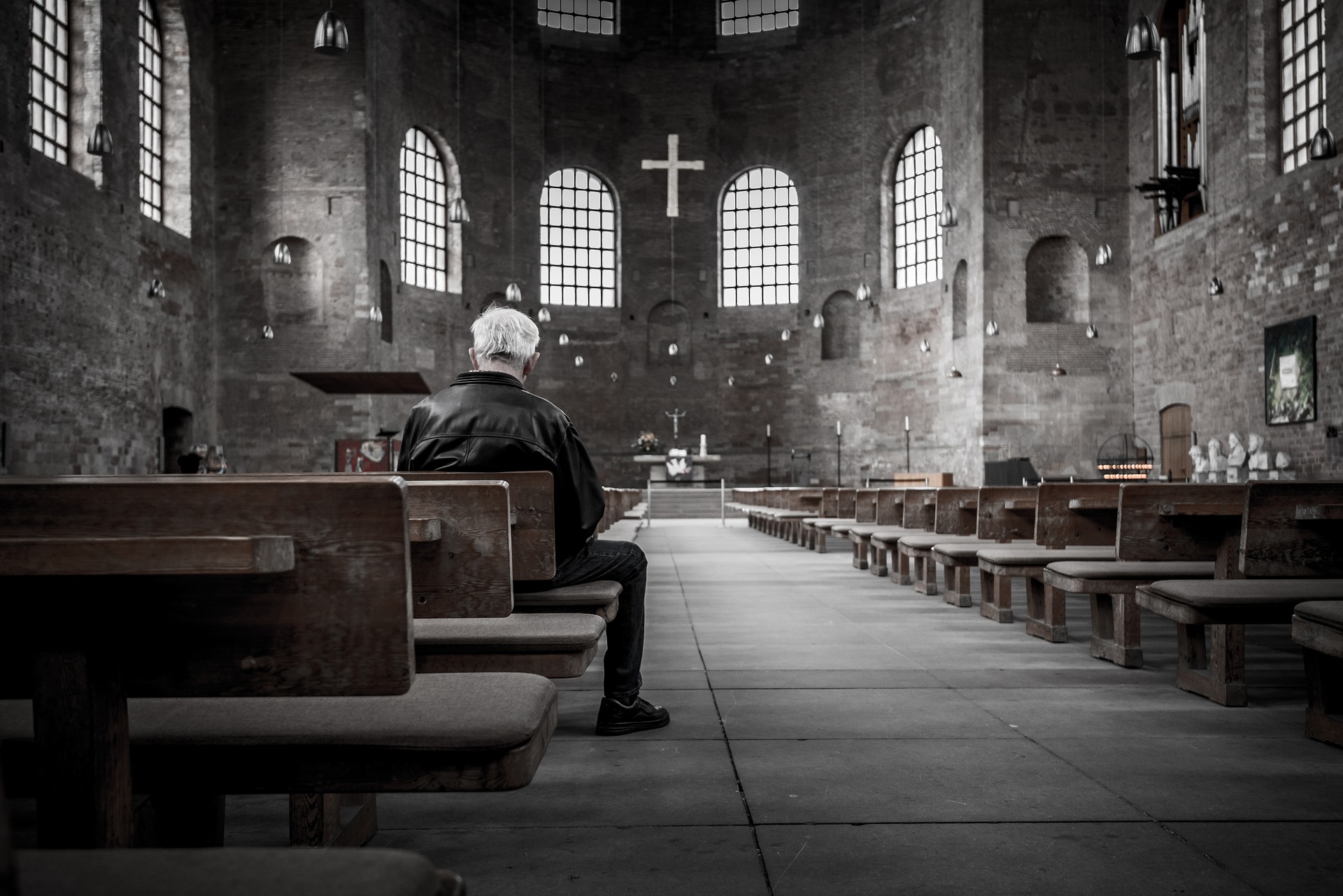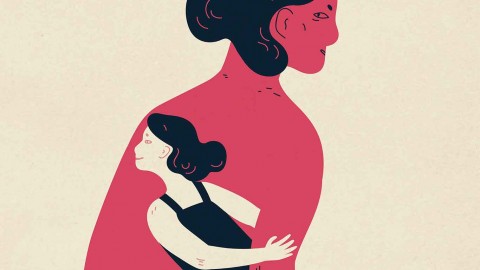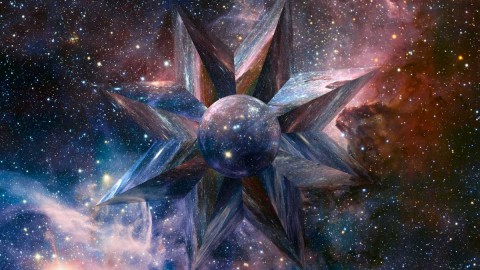HOW CAN ONE BE TOTAL YET NOT EXTREME IN ALL THAT ONE EXPERIENCES?
Don’t be worried. Just be total, and you will never be extreme. Ordinarily, if you think about it, it appears that if you become total you will become extreme – because you don’t know what totality is. Totality always happens in the middle.
It is a phenomenon of the middle, because totality is balance. On the extreme it never happens; on the extreme you can never be total. Try to understand it.
You love someone: you can be extreme in love, but that will not be totality because love has another part to it, that is hate. So you can move to one extreme, that is love; it will be one extreme. Sometimes you can hate the same person. You can move to another extreme and you can hate completely – or it appears to you that you are in complete hate – but that too is part. The whole phenomenon is love-hate, together.
If you choose one you have chosen one extreme. My left hand and my right hand – they both belong to me. If I choose the left I lean towards the left, if I choose the right I lean towards the right, and when I don’t choose any I stand in the middle.
Then both hands belong to me, but I don’t belong to them. If you choose hate you have chosen one part. If you choose love you have chosen another part.
And this is the trouble: if you choose hate, sooner or later you will fall in love. If you go on hating the enemy long enough you will fall in love. If you go on loving the friend long enough you will hate. Because one cannot remain on one extreme for long. That’s why lovers fight and enemies are also deep down lovers. They cannot be without the enemy; they cling. Love in reverse – but it is love.
What happens when one is total? Love and hate, both, are there. And when love and hate both are there, they cancel each other, and a different phenomenon arises that Buddha has called compassion. Compassion has no opposite to it. Or, you can say, “Only when there is no hate part, love becomes perfect”; but then love is in the middle. Whatsoever you want to call it is not the point, but a deep balance happens. Opposites cancel each other; they are of the same weight. They cancel each other and you remain in balance. Balance is totality. Then the whole of you is involved in it.
When a Buddha has compassion nothing is left behind. He moves totally in it.
When Jesus loves he moves totally in it. When you love, a part of you is getting ready to hate. When you hate, a part of you is getting ready to love. You are divided – a divided personality always moves to the extremes. Totality belongs to an undivided mind, non split: one stands erect, in the middle, so balanced – not leaning to this or that. In that moment of neither this nor that, one attains to totality.
The Upanishads have a particular word for it. They call it “NETI-NETI.” They say “neither this nor that” – don’t choose between the opposites. Let the opposites come together and become complementary. Let them dissolve into each other. Be choiceless. That’s why Krishnamurti goes on emphasizing one word continuously – “choiceless awareness” – because the moment you choose you have chosen the extreme.
All choice is of the extreme. You choose something against something. Whenever you say, “This is beautiful,” you have already condemned something as ugly.
Otherwise how can you say this is beautiful? In the assertion, in the statement, that this is beautiful, is hidden the statement: “Something is ugly, condemned.”
The moment you say, “This man is a saint,” you have condemned somebody as a sinner.
Saints will disappear if sinners disappear. How can there be saints if there are no sinners? Sinners are needed for saints to be. Sinners will also disappear if saints are no longer there. Who will call them sinners? How will you judge that somebody is a sinner? In a perfect humanity there will be no saint, no sinner, because the whole thing will balance deeply. Sinners and saints are opposites to each other; they exist together.
Sometimes, while Osho was travelling in India, in many places many people asked him one question again and again. The question seems to be very pertinent and relevant. They have asked me, “Why is it so, that in India there have been so many saints, and yet the country is so immoral?” I have told them it is natural.
When a country produces so many saints it has to produce the same number of sinners; otherwise the balance will be lost. When the country produces all the tirthankaras, twentyfour; all the avatars, twenty four; all the Buddhas, twentyfour; then where will the sinners go? And how can a Buddha exist if all the sinners are not here?
A Buddha exists in an ocean of sinners; there is no other way. For one Buddha to exist millions of sinners are needed. In fact, because of those sinners he looks so enlightened: contrast. Against a blackboard you write with white chalk: it looks so white, more white than white – whiter than white. Write on a white wall with the white chalk – nothing appears. When humanity will really be perfect, balanced, there will be no Buddha: it will be writing on a white wall with white chalk. A very dark humanity is needed. So, if you ask me, I hope for a world where there will be no need for a Buddha… things will be so balanced.
That’s what Lao Tzu says again and again, “There was a time in the past there were no saints – because there were no sinners.” There was a time in the past when things were so natural and so balanced that there was not even a concept of what is wrong and what is right. Lao Tzu says, “Bring the concept of right, and wrong enters immediately.” Opposites are together. They come together; they go together. They are aspects of the same coin, two aspects of the same thing.
If you choose you choose the extreme. Balance cannot be chosen. You have to become choiceless; then there is balance, neither this nor that – neti-neti.
Suddenly you balance in the middle, and all the glory of existence becomes yours. You are fulfilled.
The question seems to be meaningful, but is not: “How can one be total yet not extreme in all that one experiences?” If you are total then you will not be extreme; if you are extreme you will not be total. Try to be total and balanced, and extremes will disappear by themselves. They exist with your support.
Because you choose, that’s why they exist.
Don’t choose. Don’t say this is good and don’t say that is bad. Remain alert, that’s all. Don’t say this is a saint and that is a sinner. Remain alert, that’s all – and accept the total. The sinner exists, the saint exists: the total accepts both. You also accept both. With no condemnation of the sinner, with no appreciation of the saint, you become choiceless. In that choicelessness you will be balanced, and you will be total.
HOW IS ONE TO WATCH BREATH WHEN IT IS NOT SEEN BUT FELT?
Watching need not be a seeing, it can be a feeling. In fact it has to be a feeling because how can you see your breath? You feel it, the touch of it. When the breath moves through the passage, you feel the touch of it.
The whole thing is not a question of seeing. The thing is to be alert that it is going in, that it has reached to the very innermost core of your being, that now it has stopped; that now it is coming back. The ebb and the tide: now it has gone out, moved completely out, stopped; then again moving back. The whole circle of it – coming in, going out, coming in, going out – one has to be aware. If you feel it, that is awareness – but one should not miss feeling it. If you can do it every day for one hour, your whole life will be changed.
And remember, if you don’t change your breathing there is no chemical change happening in you. That’s the difference between Patanjali and Buddha.
Patanjali’s techniques will change your chemistry; Buddha’s technique will not touch your chemistry at all. Normal breathing – as it is: you simply watch, feel, see. Don’t let it go in and out without awareness, that’s all. Don’t change it. Let it be as it is. Just add one thing: that you remain a witness to it.
Even if you can do it for one hour, your whole life will be transfigured – and without any chemical change. You will simply become a transcendental experience, a transcendental consciousness. You will not see Buddhas, you will become a Buddha. And that’s the point to be remembered: seeing Buddhas does not matter… unless you become a Buddha.
NEED WITNESSING BE A COLD PHENOMENON?
No, but it has to be cool – not cold, but cool. And the difference is vast. When something is cold you are indifferently looking at it, not caring, indifferent. A cool phenomenon is different: you care, you are not indifferent. But you are not attached, also. You are not obsessed; you are not feverish about it. You are not excited. If you can avoid two extremes – indifference and excitement – there will be coolness, a calm, cool, collected feeling.
Witnessing need not be cold. In fact if it is cold it is no longer witnessing; you have become indifferent. You are not watching. And you know well either you can be cold or you can be hot. Coolness exists just in the middle. Coolness is neither hot nor cold; it is just the midpoint between the two. You are interested but not excited: you are watching with care, not with indifference, but you are not affected.
Difficult… because you know two feelings – cold and hot. You don’t know the third feeling at all because you move from one extreme to another. Either you hate somebody or you love. Compassion: you don’t know what it is. Compassion is just a word, seems to be meaningless. It is a cool word.
If you come to a Buddha he will welcome you, but it will not be a warm welcome – it will not be cold, also. It will be a cool welcome. He will welcome you with his whole heart, but he will not be excited. It is not that if you were not there he would have been sad because of your absence, no. He would have been as happy as ever. If you are there he is happy; if you are not there he is happy. His happiness is unaltered, that’s why it is cool.
When your friend comes to see you, you are excited – you become hot. And remember, you cannot remain hot for long, because heat is tiring. Soon you start thinking, “When will this man leave?” First, you become hot; then you become cold. First, you become happy because a friend has come; and then you become happy when he has left. A Buddha just remains happy, whether a friend comes or not does not matter. His happiness remains unaltered. He is cool.
And to understand a cool love is really a great experience – difficult, because your mind will interpret the cool love as cold. You don’t know the cool term; you know only cold. You will see that Buddha is cold. He is not. All enlightened people are cool. Cool, because you cannot disturb them – either way; you cannot make them more happy; you cannot make them unhappy. They are cool because they are centered.
Tags: Balance Cannot Be Chosen Patanjali










